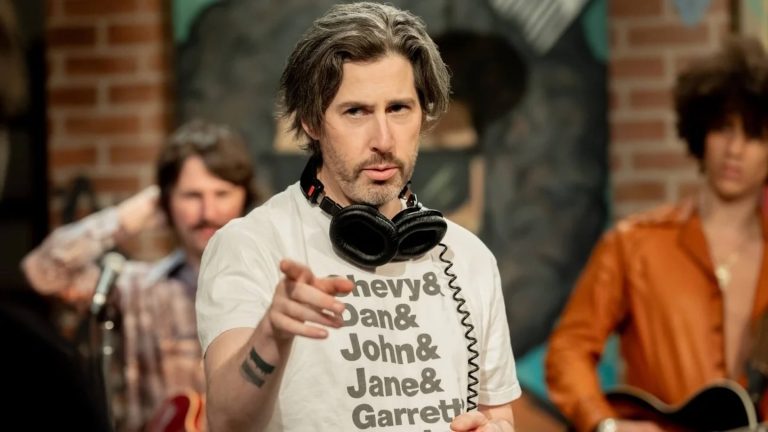3 Most Common Screenwriter Exaggerations, White Lies, and Embellishments

What are some embarrassing truths that most screenwriters don't want to admit?
Every screenwriter exaggerates, bends the truth, and embellishes throughout their screenwriting journey. No different than any potential job candidate in any other industry looking to get hired for that coveted job they've been searching for by padding their resume.
But with every exaggeration, white lie, and embellishment comes consequences if you're not too careful.
Here we briefly cover three of the most common and share how to approach those temptations without getting caught in an awkward situation.
1. "Produced" Screenwriter
This is a common title that screenwriters use on their resume, social media profiles, and biographies — and while they may be technically accurate, a majority of the time it's a misleading statement.
Within the eyes of the industry, being a produced screenwriter means that your screenplays have been produced by name studios and companies, complete with distribution releases either in major theaters, DVD/Blu-ray, or streaming.
Many screenwriters have made no-budget movies with their friends and classmates, either independently or through film courses. Others have won local short script screenwriting contests whose winners are produced by local filmmakers.
Yes, by all means, screenwriters should be proud of anything that is produced. It's a huge accomplishment.
However, if you're touting yourself as a produced screenwriter to industry insiders, either directly or indirectly, it could lead to an awkward moment or conversation. Or it could become a red flag when they look you up on IMDBPro and see that you have no credits.
So just be aware of this when you are marketing your screenplays, writing query emails, or networking at writing conferences and film festivals.
2. So and So Is "Considering" My Script
There is a huge difference between an industry insider in active talks with you about your screenplay and you either sending them a query email or a company or individual requesting to read your script after they've read your query. Or maybe you met an industry insider at an event, pitched them your script, and they were polite enough to tell you to email it to their office.
Once again, if this is true, that's wonderful. But you need to avoid exaggerating that fact in conversations and correspondence with industry insiders or at networking events.
Why?
Everyone in Hollywood knows each other because it's a network-based industry. So it can lead to an embarrassing moment when someone you've told that exaggeration to brings you and your script up in conversations with their peers.
Chances are, your script is only being read by an assistant or intern to start. So if you namedrop a big name or company and someone you've been communicating with or someone within the industry is checking your credentials, it won't reflect well on you.
A majority of the time, it's best to just keep things to yourself until there's no exaggeration needed.
It's natural. You're excited. Every screenwriter does this at one time or another. But if you really want to have a go at a screenwriting career, you need to be smart.
Example: If your college friend is an intern at Dreamworks, has read your script and likes it, you shouldn’t go email hoards of managers and agents saying that Dreamworks is interested in your script.
3. I Have (or Will Have) a Meeting with So and So
Screenwriters strive for legitimacy. They crave it. And rightfully so because it's such a difficult business, full of seemingly endless rejection.
So when you've networked yourself and your projects, and someone in the industry actually sits down with you — or says they plan to — it's exciting. Maybe that person is a friend of a friend. Maybe it's that contact you met at an event.
Read ScreenCraft's Maps Screenwriters Can Use to Build Their Industry Network!
Whatever the case may be, you need to remember to keep a cool head.
It's very natural to want to announce it to the world and use it in other discussions with Hollywood contacts — "I have a meeting with So and So" — but that can come back to bite you, much like stating that "so and so" is interested in your screenplay.
Again, everyone in Hollywood knows each other. If you're having a coffee or lunch with a friend of a friend in the business, and you tell another industry insider that you're meeting with them to talk about a script, things can go awry.
Stay professional. Keep the well-deserved excitement on the down low. You don't want that friend of a friend sitting down in an industry meeting with someone saying, "Hey, Johnny Screenwriter said you guys were meeting about their script. Why didn't you let me know you had a hot script in the works?"
"I was just being nice. They grew up with my friend from college and just got out here."
It puts them in an awkward position. And it will surely put you in one as well.
Keep it real. Don’t over-exaggerate the relationships with industry people you may or may not have met. Don’t over-exaggerate the “buzz” that your script has had. Don’t over-exaggerate the “kudos” you’ve received.
These exaggerations, white lies, and embellishments are things that every screenwriter does. There's nothing wrong with it. It's to be expected.
You just need to be careful not to burn any bridges or cause any awkward situations for you or the contacts you meet.
It's best to be comfortable in your own skin, keep these little victories and any forward momentum to yourself and your inner circle, and trust that if you keep pushing, working, and writing, you won't have to exaggerate or embellish anymore. You can announce your victories to the masses with pride.
Author's Note: I write these hard truths not from a position of looking down on screenwriters, but being guilty of all three of them at one point or another. Everyone is guilty of them at one point or another in their career, whether they want to admit it or not.
Ken Miyamoto has worked in the film industry for nearly two decades, most notably as a studio liaison for Sony Studios and then as a script reader and story analyst for Sony Pictures.
He has many studio meetings under his belt as a produced screenwriter, meeting with the likes of Sony, Dreamworks, Universal, Disney, Warner Brothers, as well as many production and management companies. He has had a previous development deal with Lionsgate, as well as multiple writing assignments, including the produced miniseries Blackout, starring Anne Heche, Sean Patrick Flanery, Billy Zane, James Brolin, Haylie Duff, Brian Bloom, Eric La Salle, and Bruce Boxleitner. Follow Ken on Twitter @KenMovies
For all the latest ScreenCraft news and updates, follow us on Twitter and Facebook!
Tags
Get Our Screenwriting Newsletter!
Get weekly writing inspiration delivered to your inbox - including industry news, popular articles, and more!




























